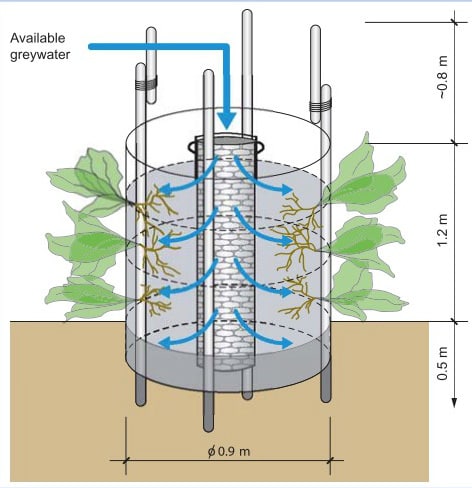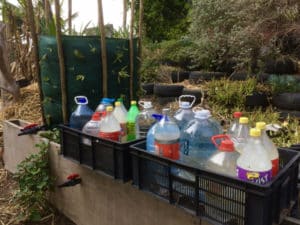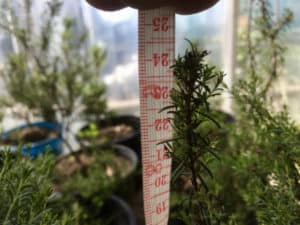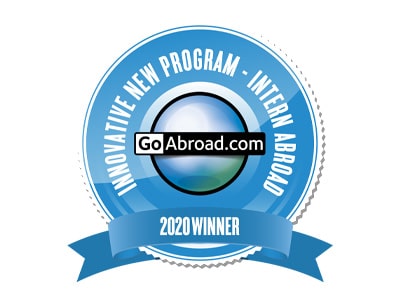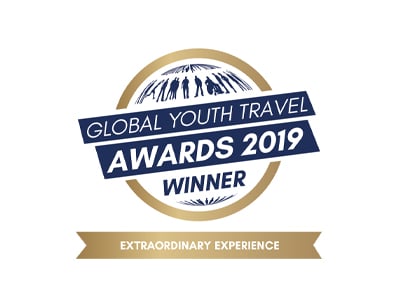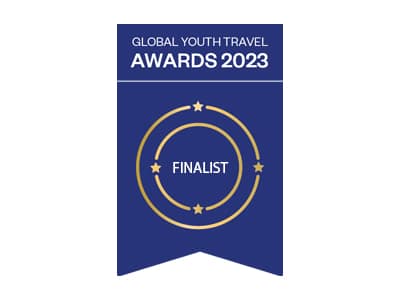Roy’s studies, the Master’s programme of Bio Inspired Innovation at Utrecht University, allows (or requires) its students to engage in two research projects: a Major Research Project in the Netherlands and a Minor Research Project abroad. He decided that he wanted to go to Cape Town for his Minor and got in touch with Greenpop. After some extensive back-and-forth messaging they agreed on a project. He would do five months research on ways to filter so-called grey water for the purpose of fynbos irrigation. He now reflects on this Research Internship in Cape Town.
Grey Water for the indigenous Fynbos gardens
Fynbos is indigenous only to the Western and Eastern Cape of South Africa and extensively threatened. Within their Fynbos for the Future programme, Greenpop aims to establish fynbos gardens at various schools in and around Cape Town. Those gardens need water, and water is scarce, due to e.g. a growing population in combination with climate change. To allow schools to water their fynbos gardens, especially during the dry summers, recycling wastewater (grey water) seems to be an ideal solution. However, in doing so, there is one major problem to solve.
Most species of fynbos rely on relatively low levels of nutrients. Grey water, in contrast, contains great amounts of nutrients. Hard soaps, for example, contain high levels of phosphorous – and after washing your hands all these nutrients end up in the grey water. I say nutrients because grey water components like nitrogen, phosphorus and potassium are very important for plants and help them to grow. Excess levels, however, will inhibit natural growth, resulting in i.e. poor leaf and root development. Since fynbos relies on low levels of nutrients, irrigating this type of vegetation with grey water will quickly result in nutrient levels being too high. Thus, my task was to design, develop and built a filtration system go get the nutrients and other potentially harmful substances out of the grey water.
Keen to get involved in the Fynbos for the Future Program? Check out the Urban Greening Internship
Biomimicry: Using Nature’s principles for sustainability purposes
My Master’s pursues answers to the following question: how can we use nature’s principles for sustainability purposes? The central thought is that nature has been conducting Research and Development for over 3.8 billion years, and we as humans can only learn from that. In short, this is called Biomimicry (search the internet for this term to find out more). Thus, the filtration system I had to come up with had to be fully nature-based, meaning inspired by nature, or bio inspired. Next to that, there were a few more prerequisites.
Since the plan was to build the system together with kids from primary and high schools, it couldn’t be too complex. Furthermore, it had to be cost effective, since sponsors should be able to fund the system. Lastly, I should be able to design, develop and build it in 5 months time, without any prior specific knowledge on the subject.
Office time as part of my Research
I started with some extensive research on the subject, working at the Greenpop office. For me, the setup of the office represents the Greenpop culture. It can be chaotic, quiet and thrilling, but it will always give you a sense of home. The Greenpop staff and interns are so involved with nature – all in their own way – and so intrinsically motivated to do something good for the world, one way or another. This was so evident that even from the Netherlands, preparing for my time abroad, I could tell that the organization would fit me like my favorite pants.
However, academic research is not something that Greenpop is very experienced at, to say the least. I am therefore very grateful that they said ‘yes’ to my project proposal and let me be part of the family for nearly half a year. My supervisor was always there to brainstorm and give advice. I felt really part of the team, even though I was not the typical ‘intern’. Because they gave me such a warm welcome, the end product of my project, for me, had to be something that would benefit Greenpop as well. After five months, I think I achieved this.
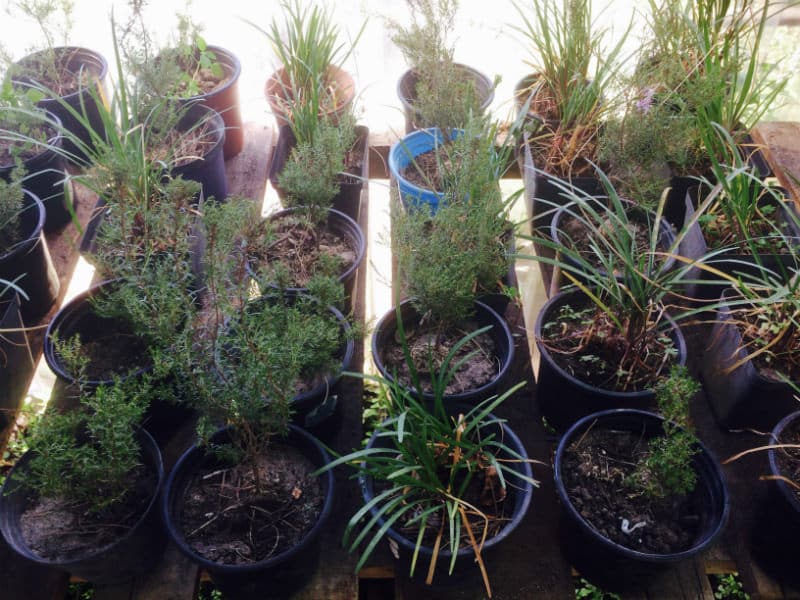
Creating a mini wetland Ecosystem
Based on two existing designs, I came up with a filtration system that mimics a wetland ecosystem. Wetlands are known to possess excellent water purification characteristics. They are mainly linked to an extensive network of interactions at a micro-scale. A large number of invertebrate, microbe, algae and plant species absorb and break down excess nutrients and harmful substances in grey water and turn it into water with acceptable nutrient levels for fynbos irrigation. Here, we are using nature’s inherent ability to clean itself – to a certain extent.
At Greenpop’s nursery, the Eco Hub, I built a so-called Grey water Filtration Tower (GFT). This is essentially a micro-ecosystem mimicking a wetland in the form of a one meter high, cylindrical tower. Grey water is poured on top of the tower. A central column of stones distributes the water across the surrounding soil. The water slowly trickles down the soil, is purified on the way, and is then captured in a large bucket at the bottom of the tower. A pipe and a valve allow for tapping the filtered water and using it for fynbos irrigation.
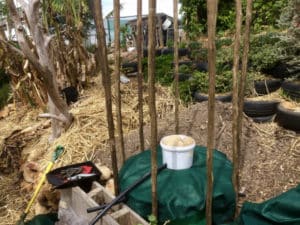
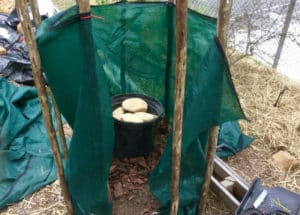
To test the effectiveness of the system, I set up an experiment with three groups of sensitive fynbos plants. One group was treated with normal (borehole) water, one group with pure grey water and one group with filtered water. Currently, I am working on analyzing the data and writing my report, but the preliminary results look good! The final aim is to install the GFT in various fynbos gardens across Cape Town, coupled to a workshop in which the kids and sponsors can learn about nature-based filtration while building the tower. That way, the success of the project is not only bound to the effectiveness of the tower. Instead, we will be able to contribute to the whole of Greenpop’s mission. To restore natural spaces, green communities and activate environmental stewards.
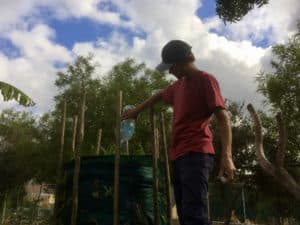
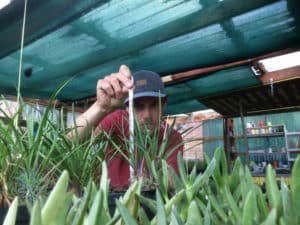
The fact that Greenpop is not an academic research institute makes that I had to work relatively independently. Luckily, next to the research, I was also involved in a number of tasks that were more internship-related, like working at the Eco Hub and at Greenpop’s tree planting festival. I enjoyed that a lot: 40 hours per week at the office is not for me, and conducting research without any team members could get a bit lonely at some point.
Intern Life in Cape Town
In general, living in Cape Town for five months was a dream come true. I’m a big fan of (kite)surfing and lived in Big Bay – 20 kilometres from Cape Town – nearly a hundred meters from the sea: heaven! But anywhere in Cape Town, nature is so incredibly close! Hiking, walking, surfing, climbing: anything is possible. For the last two weeks, I lived in the city centre with some of the other interns. This allowed me to explore the city’s vibrant atmosphere and many hidden gems. At walking distance from the office, it was in some sense also a relief for me. A relief? Yes, Cape Town also has negative aspects.
First, traffic is horrible – leaving home at 6:00 am to avoid the traffic jams was no exception for me. Renting a car was useful, but you should really plan your trips carefully. Second, inequality in Cape Town is worse than anywhere I’ve ever seen before: no way I could get used to that. The roar of an accelerating Porsche would wake the homeless people sleeping on the sidewalk. Although many people warned me about Cape Town’s crime record, I never felt insecure. This inequality situation provided me with some interesting subjects of thought.
The fact that I can’t come up with more negative aspects probably speaks for itself. I would definitely recommend Greenpop – and Cape Town – for an internship or a research project. Make sure to chat extensively with your future supervisor beforehand, to make sure you and the organization are a match. This especially applies to a potential research project: make sure your tasks and research project are well defined!
Also looking for a Research Opportunity? Contact us
All in all, I would like to thank Greenpop for hosting me, and Cape Town for being such an amazing city. Keep up the good work and stay awesome!
Other interesting Reads
- Meet the Intern: Robert, Research Intern in Cape Town
- How interns made an Impact on Greenpop’s Fynbos program
- Water-based filtration systems by Vincent
- The Life of a Cape Town Intern


